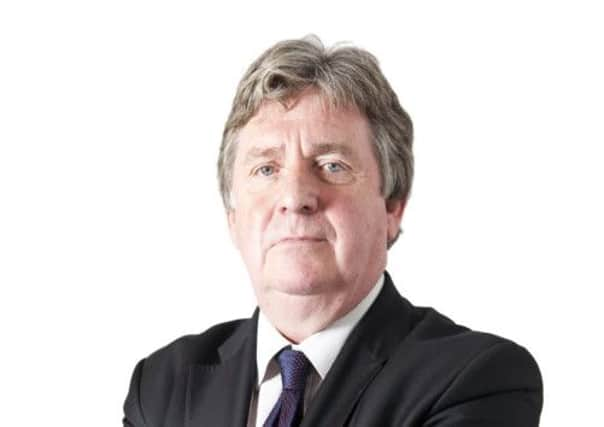Comment: Carney knows recovery only half-finished


Mark Carney knows the “recovery” is too nascent, too moderate, for premature optimism. While still welcome following five thin years for the economy, better data from services to manufacturing and construction is only impressive in the context of the chronic pain we have had since 2008.
MPs are virtually certain to get a measured response from the governor at the 24,000 fall in unemployment to 2.49 million announced by the Office for National Statistics yesterday.
Advertisement
Hide AdAdvertisement
Hide AdThat took the jobless rate in the three months to July down from 7.8 per cent to 7.7 per cent, with Carney having promised to keep interest rates at historic lows until the jobless figure comes down to 7 per cent.
To hit the target, it would need a fall in unemployment of about 750,000, which the BoE estimates will take three years, and puts the latest quarterly decline in stark context.
Even the more positive recent unemployment data masks real concerns that will no doubt exercise Labour members of the Treasury committee, in particular.
Numbers of people working part-time involuntarily because they cannot get a full-time job has surged in this lengthy downturn to the highest level since the fag‑end of the 1991-2 recession.
Meanwhile, the number of unemployed 16-to-24-year-olds jumped again in the latest figures, and is running at about 20 per cent.
That is not as bad as the 40 per cent-plus rates of youth unemployment in the likes of Greece and Spain, but still a cause for shame at failing a generation that must wonder whether it has collectively been born out of time.
There is also a geographic divide in unemployment, with the north of England and Scotland actually showing increases between May and July.
This is probably linked to the greater public sector employment as you move north in Britain, a sector that continues to bear the Jobcentre Plus brunt of the UK government’s austerity programme.
Advertisement
Hide AdAdvertisement
Hide AdAgainst this mixed picture of an economic recovery that some are seeing more than others, with headwinds far from fully abated, Carney is likely to be at his most nuanced and contextualising before the MPs this morning.
Direct route to the top works for Mike Ashley
STRONG new sales figures is always a good way for a company to celebrate its impending promotion to the blue-chip FTSE 100 index, and Mike Ashley’s Sports Direct has done just that. The sports retailer told investors that group sales jumped 18 per cent to more than £613 million in the latest quarter to 28 July.
What a turnaround. Sports Direct floated at 300p in February 2007 and went as low as 32p the following year, partly due to flaky corporate governance.
But, at a closing price of 729p yesterday, the company is now worth £4.3 billion, and the shares should get extra support from the tracker funds that buy into the Footsie as a matter of course.
Ashley has weathered his stock market storms, and seen off rivals such as the failed JJB Sports and the predatory big supermarket groups with an unfashionable pile-it-high and sell it cheap-ish retail strategy.